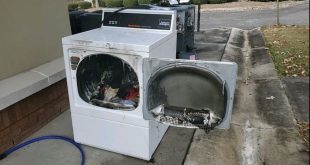According to a new study, you could be one of the five Americans affected by hearing loss.
In an article written by Danielle Dellorto, CNN senior medical producer, the study published in the Archives of Internal Medicine shows that more than 48 million Americans over age 12 have trouble hearing in one or both ears.
Although most people think that hearing loss just happens with age, loud music is also a contributor.
“I think it lowers your hearing abilities, probably not when you’re younger, but when you’re older,” Austin Madruga, senior criminal justice major, said.
Dellorto puts the damage into perspective by explaining what actually occurs when you crank up the volume on your headphones. The sound waves travel through the ear canal up to hair cells located in the inner ear. The purpose of the hair cells is to help convert the sound energy from the music into electrical signals that are then sent to the brain, which enables you to hear music clearly. Unfortunately, if your music is too loud, it damages the hair cells, which never grow back.
I don’t think people should listen to music any less than they do already, but they should just be aware of how loud the music is coming through the headphones. I know I am sometimes guilty of listening to music that’s really loud, particularly because I can’t hear the lyrics over the music or I don’t want to be disturbed, but I increasingly realize that it will damage my hearing in the long run and I feel like I am already beginning to see effects.
Sometimes it annoys me when I’m on the shuttle and someone’s music can be heard over everything else and I wonder why they have it up so loud. I feel there is no reason for it to be that loud. Because of this, if I’m on the shuttle, I try to turn my music down to a reasonable level—plus, I don’t always want people to know what I’m listening to.
Dr. Frank R. Lin, lead study author and assistant professor of otolaryngology-head and neck surgery and epidemiology at Johns Hopkins School of Medicine, said most people won’t see the impact of loud noise exposure until many years later and so they aren’t aware of damage being done to their hearing until it’s too late.
Some VSU students are aware of the damage caused by jamming out to music at such a high volume.
“I think if you listen to headphones at a higher rate, you will lose your hearing over time because if it’s at such a high decibel, it’s damaging to your eardrums slowly over time,” Ashley Barnes, senior biology major, said.
Some MP3 players can be blamed because of the extreme volume levels they reach.
Dellorto writes that the average MP3 player plays music at a maximum value at 115 decibels. Listening to one at 100 decibels for just 15 minutes can cause hearing loss, according to the American Academy of Otolaryngology. Even listening to music at 85 decibels repeatedly can cause damage.
My parents consistently comment on how loud my music is if we’re in the car, and if I don’t think it is very loud, I get extremely annoyed. They always talk about hearing loss and even refer to articles or studies they read about.
Now that I’m older I’m taking the risk of listening to music too loudly into consideration. I don’t want to damage my hearing anymore than I probably have done so already. I think people know that loud music in their ears causes hearing damage and loss, especially for long periods of time, but I feel like some just do not care.
 The Spectator The independent student newspaper of Valdosta State University
The Spectator The independent student newspaper of Valdosta State University





